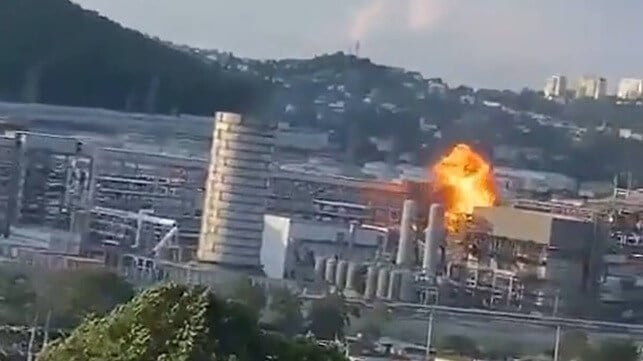After Ukrainian Drone Attacks, Three Russian Refineries Set to Close

Three Russian refineries that were hit by Ukrainian drones earlier this year could soon close, according to Reuters. The affected facilities are having a harder time competing in an environment of higher oil prices, and their expected closures are believed to be motivated by finances.
The refineries include two small independent facilities, Ilsky (in Krasnodar) and Novoshakhtinsky (in Rostov). The Tuapse refinery, owned by state oil firm Rosneft, was built in 1929 and despite several rounds of technological upgrades, its infrastructure is relatively dated. It is the sole Russian refinery on the Black Sea coastline and is particularly vulnerable to Ukrainian attacks.
All of these plants have been hit by Ukrainian drones. Tuapse was hit three times, once in January and again in May and July, forcing it offline each time. It has also shut down voluntarily several times because of weak refining margins.
If Tuapse shuts down altogether, it would have minimal impact on the Russian domestic market or the Kremlin's war effort. Its 240,000 bpd of fuel production is sold almost entirely to overseas customers, primarily in Turkey and in the Far East.

that matters most
Get the latest maritime news delivered to your inbox daily.
The Ilsky refinery is a 130,000 bpd refinery in the Krasnodar region, about 35 miles inland from the port of Novorossiysk. It was hit and damaged in a Ukrainian drone strike in June, and it has applied for government assistance to help with modernization upgrades. Russia's extra-high wartime interest rates (currently 21 percent) have made it hard to borrow for industrial projects like refinery improvements.
The Novoshakhtinsky refinery is an independently-owned topping plant in the Rostov region, and can produce about 100,000 bpd. It was attacked by Ukrainian drones in March, April and June, and was partially closed for repairs until August.
